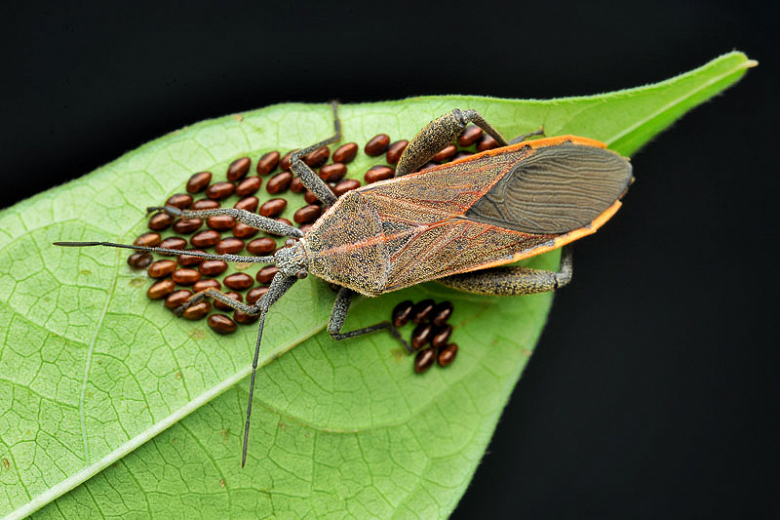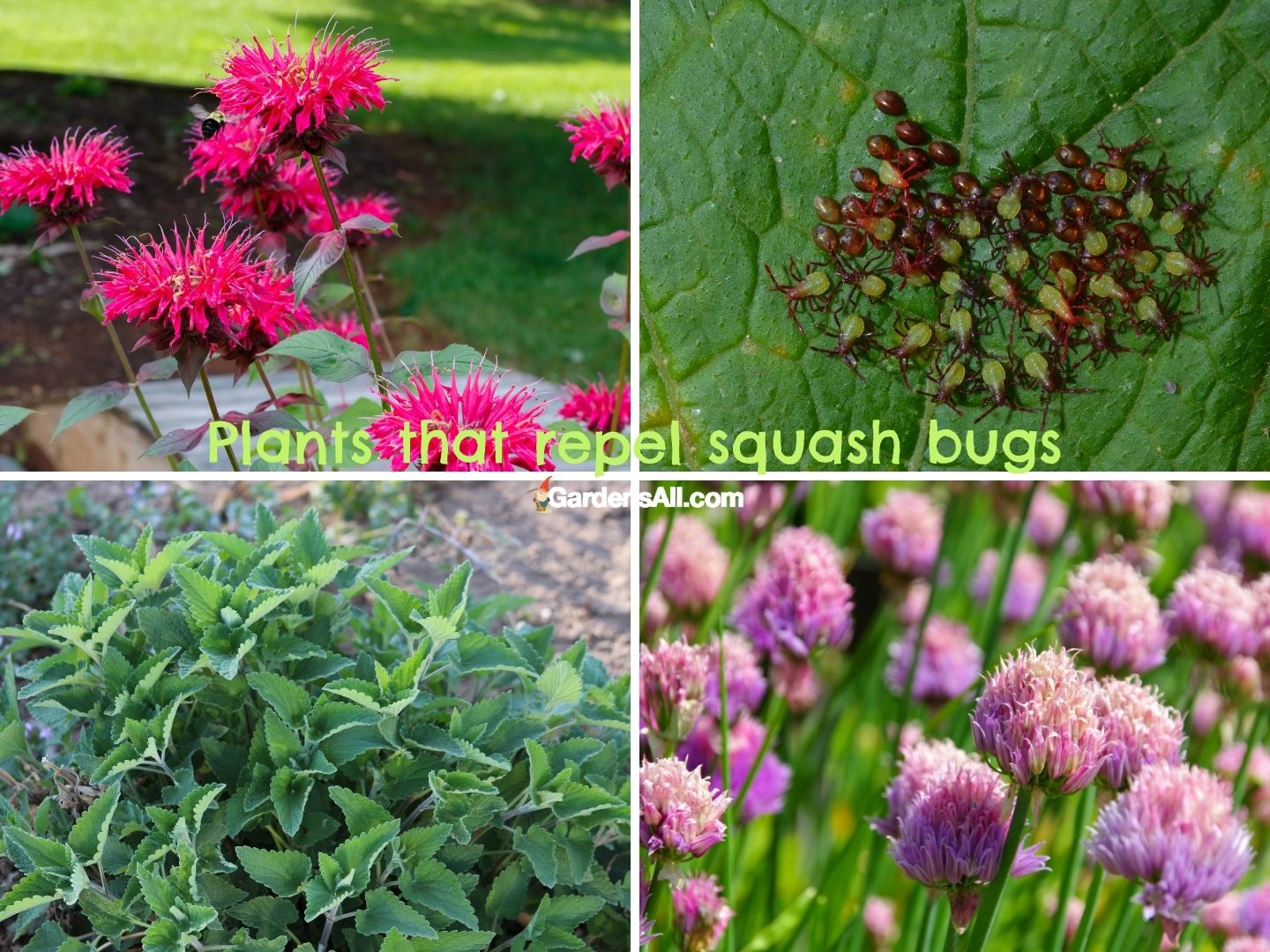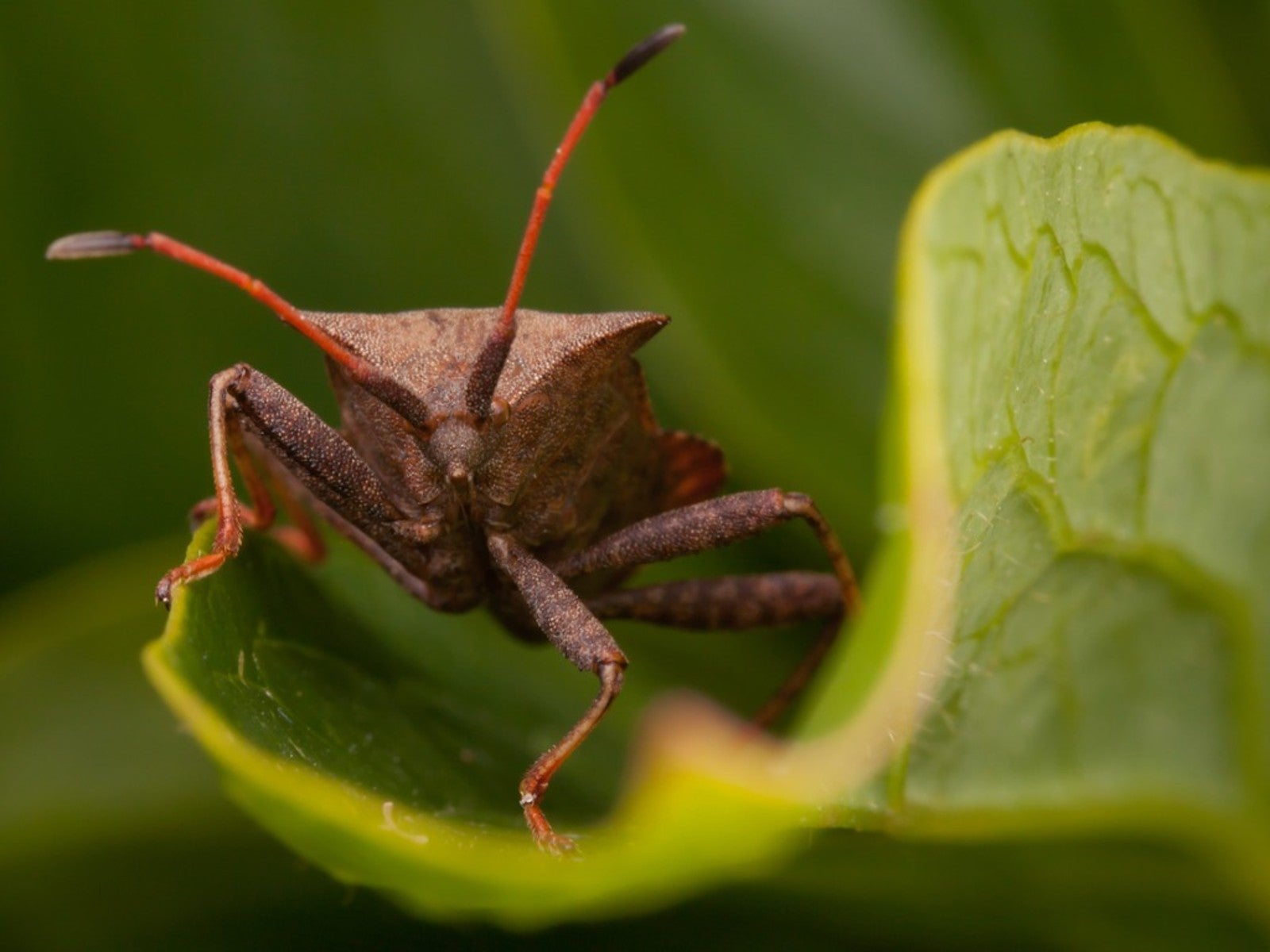Keep Squash Bugs Away With These Companion Plants
Keep Squash Bugs Away With These Companion Plants
Squash bugs are a common pest in gardens, and they can quickly ruin a harvest. These insects feed on the leaves and stems of squash plants, and they can also transmit diseases.
There are a number of ways to control squash bugs, including chemical pesticides. However, these chemicals can be harmful to the environment and to beneficial insects.
A more natural way to control squash bugs is to use companion planting. Companion planting is the practice of planting certain types of plants together to benefit each other. Some plants can repel pests, while others can attract beneficial insects that prey on pests.
There are a number of companion plants that can help to keep squash bugs away. Here are some of the most effective:
- Nasturtiums: These colorful flowers are a great way to deter squash bugs. They release a scent that the bugs find unpleasant.
- Marigolds: Marigolds are another effective repellent for squash bugs. They also release a scent that the bugs find off-putting, and they can help to attract beneficial insects that prey on squash bugs.

- Dill: Dill is a fragrant herb that can help to repel squash bugs. It also attracts beneficial insects, such as ladybugs, that prey on squash bugs.
- Garlic: Garlic is a strong-smelling herb that can help to repel squash bugs. It also has insecticidal properties that can kill squash bugs on contact.

- Catnip: Catnip is a member of the mint family, and it has a scent that squash bugs find unpleasant. It can also help to attract beneficial insects, such as hoverflies, that prey on squash bugs.

- Tansy: Tansy is a strong-smelling herb that can help to repel squash bugs. It also has insecticidal properties that can kill squash bugs on contact.

- Bee balm: Bee balm is a member of the mint family, and it has a scent that squash bugs find unpleasant. It also attracts beneficial insects, such as bees, that pollinate squash plants.
- Oregano: Oregano is a fragrant herb that can help to repel squash bugs. It also has insecticidal properties that can kill squash bugs on contact.

In addition to these plants, there are a few other things you can do to help keep squash bugs away. These include:
- Planting squash plants in full sun. Squash bugs prefer shady areas, so planting your plants in full sun will help to deter them.
- Watering your plants regularly. Squash bugs are more likely to attack stressed plants, so make sure to water your plants regularly.
- Inspecting your plants regularly. The earlier you catch a squash bug infestation, the easier it will be to control. Inspect your plants regularly for signs of damage, and remove any squash bugs you see.
By planting companion plants and following these other tips, you can help to keep squash bugs away from your garden.
Squash bugs are a common pest in gardens, and they can quickly destroy squash plants. However, there are a number of companion plants that can help to deter squash bugs. These plants release chemicals that repel the bugs, or they attract predators that eat the bugs.
Some of the most effective companion plants for deterring squash bugs include:
- Nasturtiums: These bright flowers have a strong scent that repels squash bugs. They also attract beneficial insects, such as ladybugs, which eat squash bugs.
- Marigolds: These cheerful flowers also have a strong scent that repels squash bugs. They also help to improve the soil quality, which can make your squash plants healthier.
- Chives: These flavorful herbs release chemicals that repel squash bugs. They can also be used to make a natural insecticidal spray.
- Dill: This herb attracts parasitic wasps that prey on squash bugs. It also helps to improve the pollination of your squash plants.
- Catnip: This pungent herb has a strong scent that repels squash bugs. It can also be used to attract cats, which can help to control other garden pests.
If you're looking for a natural way to deter squash bugs, planting companion plants is a great option. These plants are easy to grow and maintain, and they can help to keep your squash plants healthy and productive.
For more information about companion plants to deter squash bugs, visit Gardenia Inspiration.
FAQ of companion plants to deter squash bugs
Q: What are some companion plants that deter squash bugs?
A: There are a number of companion plants that can help deter squash bugs. Some of the most effective include:
- Nasturtiums: These colorful flowers have a strong scent that is unpleasant to squash bugs.
- Marigolds: Marigolds also have a strong scent that can repel squash bugs. They also attract beneficial insects that prey on squash bugs.
- Calendula: Calendula is another herb with a strong scent that can deter squash bugs. It also has insecticidal properties that can help kill squash bugs.
- Dill: Dill is a member of the carrot family, which is a natural repellent to squash bugs.
- Garlic: Garlic has a strong scent that can repel squash bugs. It also has insecticidal properties that can help kill squash bugs.
Q: How far apart should companion plants be planted to deter squash bugs?
A: The exact distance that companion plants should be planted apart to deter squash bugs will vary depending on the specific plants you are using. However, as a general rule of thumb, you should plant companion plants about 1-2 feet apart. This will help to create a barrier between your squash plants and the squash bugs.
Q: What other methods can I use to deter squash bugs?
Along with companion planting, there are a number of other methods you can use to deter squash bugs. These include:
- Floating row covers: Floating row covers are a physical barrier that can help to keep squash bugs out of your garden.
- Diatomaceous earth: Diatomaceous earth is a natural insecticide that can help kill squash bugs.
- Insecticidal soap: Insecticidal soap is a non-toxic insecticide that can help kill squash bugs.
- Handpicking: Handpicking is an effective way to remove squash bugs from your garden.
Q: What should I do if I see squash bugs on my plants?
If you see squash bugs on your plants, it is important to act quickly to remove them. You can handpick the bugs and drop them into a bucket of soapy water. You can also use a mixture of water and insecticidal soap to spray the bugs.
Q: How can I prevent squash bugs from coming back next year?
There are a number of things you can do to prevent squash bugs from coming back next year. These include:
- Remove all old squash plants after harvest: This will help to remove any overwintering sites for squash bugs.
- Keep your garden free of debris: Debris can provide hiding places for squash bugs.
- Rotate your crops: Rotating your crops will help to break the life cycle of squash bugs.
Image of companion plants to deter squash bugs
- Nasturtiums. Nasturtiums are a great companion plant for squash because they attract predatory insects that eat squash bugs. They also have a strong scent that can help to deter squash bugs.

- Marigolds. Marigolds are another good companion plant for squash. They release a chemical that can help to repel squash bugs. They also attract pollinators, which can help to improve the pollination of your squash plants.

- Bee balm. Bee balm is a fragrant herb that can help to deter squash bugs. It also attracts pollinators, which can help to improve the pollination of your squash plants.

- Catnip. Catnip is a member of the mint family, and its strong scent can help to deter squash bugs. It also attracts beneficial insects, such as ladybugs, that can help to control pests.

- Tansy. Tansy is a strong-scented herb that can help to deter squash bugs. It also has insecticidal properties that can help to kill squash bugs.

Post a Comment for "Keep Squash Bugs Away With These Companion Plants"